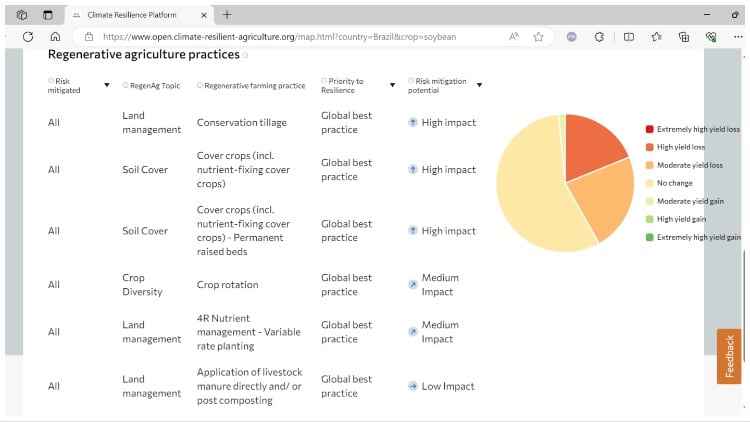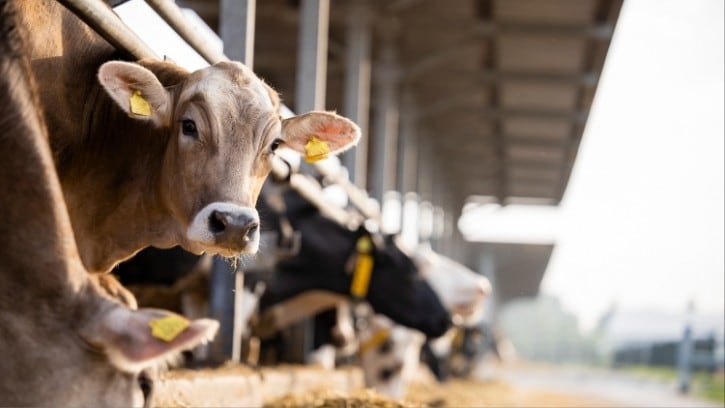In the UK, England experienced the second wettest six-month period on record between October 2023 and March 2024. Rainfall was almost 60% above the 10-year average. This is having a devastating impact on farming, with UK farmers having to deal with soil erosion, crop damage and flooding.
In 2021, the UK Food Security Report named climate change as “the biggest medium to long term risk” to its domestic production.
Whilst you could argue that global warming has more recently been making itself felt in the UK, the impact in other regions has been evident for some time - and scientists have been warning us for even longer.
In 1938, a steam engineer by the name of Guy Callendar claimed that global temperatures had risen 0.3°C over the previous 50 years. Although he did his calculations by hand, his estimates turned out to be remarkably accurate.
The reality is that this is the world's biggest challenge right now and in the future, with the possibility of exposing millions of people worldwide to acute food insecurity.
PepsiCo's Climate Resilience Platform
“We’re seeing so much more disruption in supply chains from climate change,” Margaret Henry, PepsiCo’s vice president of sustainable & regenerative agriculture, agreed.
And the knock-on effect from this has been farmers asking the business: ‘What can you, as our partner, do for us?’
So that's what the business set out to achieve. However, it wasn't an overnight solution; as Henry described, a “more proactive tool around climate” was required.
Henry said it became apparent that there was a gap in the market. She explained that many of the platforms were costly, limited in their projection timespan and “very general”.
While you could probably ascertain a 50-year projection, it didn’t really hold much tangible information: “But what does it mean to me and what does it mean to my farmer? How do I tell them what’s coming?
“We needed to understand the risks facing farmers and the risks around the world in the near term and long term."
This sparked PepsiCo’s Climate Resilience Platform (CRP), which the business began working on in February 2020 – a tool that doesn’t just identify where risk is occurring geographically, but also helps provide positive climate action against those risks.
“CRP is essentially our way to understand how we can partner with farmers and others in our supply chains to keep farmers farming and to keep our supply of products strong. That's the very nutshell.”
Leveraging crop research from the Alliance of Biodiversity International and research organisation CIAT, the platform provides users with the ability to dive into the climate risk posed on crops within their respective growing regions.
The platform assesses current and future climate states and provides probabilities of extreme events, such as heat stress, frost risk, extreme rainfall and drought. The yield risk to that crop is then predicted.
“But we wanted to know ‘what are the right practises for the farmers’,” added Henry. “The ‘so what should you do about this.’”
And so, the tool does just that.

In a demonstration of the platform, Andre Eitner, PepsiCo’s director for global climate action agriculture and Europe positive agriculture, showed Food Manufacture how the tool identifies risks to the selected crop in the selected region, and then makes suggestions on actions that will alleviate that risk.
It then further illustrates the power of action compared to none; this is broken down into three divisions: baseline, do nothing scenario 2030, and resilient scenario 2030.
“This is not a weather forecasting tool for the next few weeks, it’s not about the next season crop modelling. It’s about where do we need to place our big strategic plans in terms of infrastructure and investment,” Eitner said.
PepsiCo is now using the tool worldwide, expanding into different regions and scaling up its crop repertoire. But the initial focus was on Southeast Asia, which the business had identified as a place it sourced from that was particularly at risk of climate change.
The company teamed up with German development agency (GIZ) to introduce the tool and demonstration farms to rice farmers in Southeast Asia. Together, the team identified specific agricultural practices that would help farmers adapt to the local changes in climate.
Over two years, the tool boosted farmers’ incomes, while also cutting down greenhouse gas emissions and improving soil quality.
Using insights leveraged through the CRP, PepsiCo says the farmers it worked with in Thailand were able to improve their livelihoods by 32%.
Industry knowledge sharing
Whilst PepsiCo has the capital to invest in creating its own platform that plugged the gaps Henry referenced earlier, she said the business recognised that others did not have that luxury.
With nine crops available, CRP is now a free, open-source resource that PepsiCo hopes other businesses will expand upon.
“Time is far too short for this kind of information to be siloed, too short for this to be information that is only accessible if you can pay for it,” Henry commented. “This information needs to be available to absolutely everyone who can and should take action to secure the future of our food system.
“Our hope is that it continues to grow; others can come in and they can expand the geographies, they can expand the crops, so that it can be usable by many other farmers and companies around the world.”
This is not the first time PepsiCo has helped create a free to use platform, with the CRP following previous work to help farmers grow the ‘perfect oat’.
For this, its R&D agricultural science team, alongside several partners, developed foundational knowledge of oat physiology and agronomy to support farmers to create what is now known as the ‘Quaker Oat Growth Guide’.
This guide shows growers how they can optimise their management practices to improve yields and efficiency, ensuring a more sustainable, high-quality supply of oats for consumers.
PepsiCo said it ‘made a deliberate decision to publish the Oat Growth Guide externally’ to raise the bar on sustainable oat production across the industry and provide an extensive knowledge base for the next generation of crop scientists.
In other news, consumer trust in food manufacturers is falling, with just 46% saying they believe they are competent and open.





